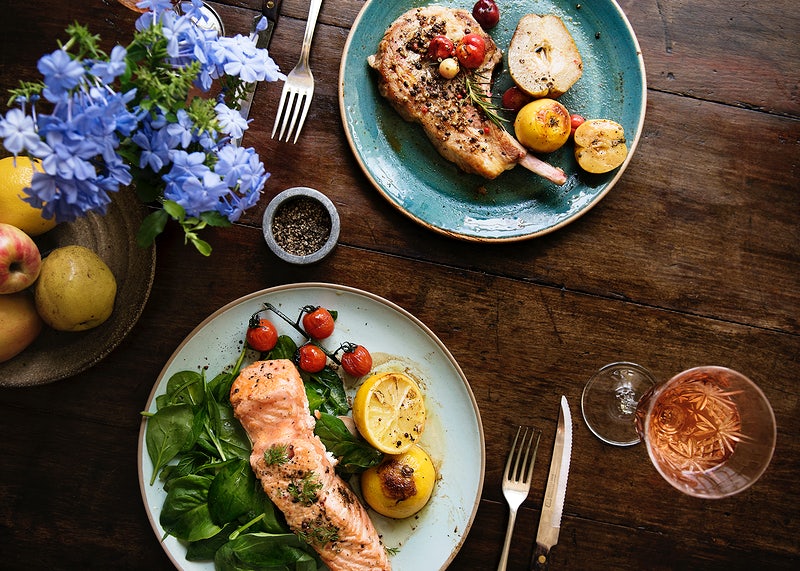
“Embarking on a journey towards better nutrition is not just about changing what you eat; it’s about transforming your relationship with food.”-Coach Sandy.
This blog will guide you through setting realistic and sustainable nutrition goals that nourish both your body and mind.
Understanding Nutrition:
Nutrition is the foundation of good health and well-being. It involves more than just eating; it’s about fueling your body with the right balance of nutrients. A well-nourished body supports both physical and mental health, enhancing your overall quality of life.
- Macronutrients and Micronutrients. Learn about the roles of proteins, carbohydrates, fats, vitamins, and minerals in your diet.
- Hydration. Discover why water is crucial for your health and how it affects your energy levels, brain function, and physical performance.
- Debunking Nutrition Myths. Uncover common misconceptions about dieting and nutrition that might be hindering your progress.
Assessing Your Current Diet:
Self-awareness is key to improving your nutrition. By understanding your current eating habits, you can identify areas that need change.
- Food Diary. Start by keeping a record of everything you eat and drink. This practice can reveal patterns and help you make more conscious food choices.
- Listening to Your Body. Pay attention to how different foods make you feel. This can help you identify foods that energize you and those that don’t.
- Nutrient Intake vs. Requirements. Compare your typical nutrient intake with the recommended dietary guidelines to see where you might need adjustments.
SMART Goal Setting in Nutrition:
Setting SMART (Specific, Measurable, Achievable, Relevant, Time-bound) goals can transform your nutritional habits from a vague intention into a concrete plan.
- Specific and Measurable. Instead of a vague goal like “eat healthier,” set specific targets like “include two servings of vegetables with every dinner.”
- Achievable and Realistic. Ensure your goals are within reach. If you rarely eat vegetables, don’t immediately aim for five servings a day. Start small and build up.
- Time-bound. Give yourself a deadline, like “I will achieve this in four weeks.” This creates a sense of urgency and accountability.
Examples of Nutrition Goals:
- Meal Planning and Prepping. Plan your meals for the week and prepare them in advance. This helps in making healthier choices and avoiding impulsive eating.
- Introducing New Foods. Each week, try incorporating a new fruit, vegetable, or whole grain into your diet.
- Reducing Unhealthy Foods. Gradually cut down on sugars, processed foods, and unhealthy fats.
Overcoming Common Challenges:
- Healthy Eating on a Budget. Explore budget-friendly healthy eating tips.
- Social Eating. Learn strategies to stick to your nutrition goals while enjoying social gatherings.
- Emotional Eating. Understand the triggers of emotional eating and how to manage them.
Tracking Progress:
- Apps and Tools. Utilize digital tools to track your dietary intake and progress.
- Non-Scale Victories. Celebrate improvements in energy levels, mood, and overall well-being, not just weight loss.
- Regular Check-ins. Schedule routine assessments of your progress and adjust your goals as needed.
Conclusion:
View your journey towards better nutrition as a continuous learning experience. Celebrate each small victory and be patient with yourself. Remember, the goal is progress, not perfection. By setting achievable nutrition goals, you’re on your way to a healthier, more fulfilled life.
Nutrition is not just about eating; it’s about learning to live.
Talk to you soon!
Coach Sandy



